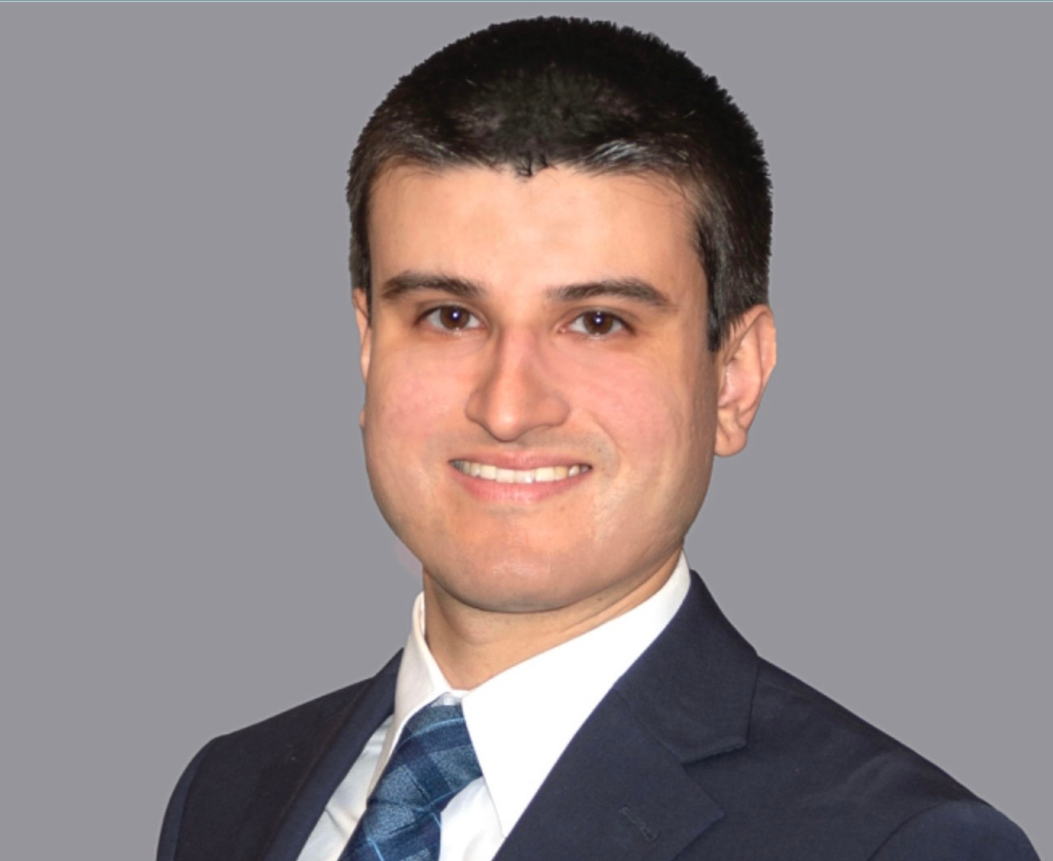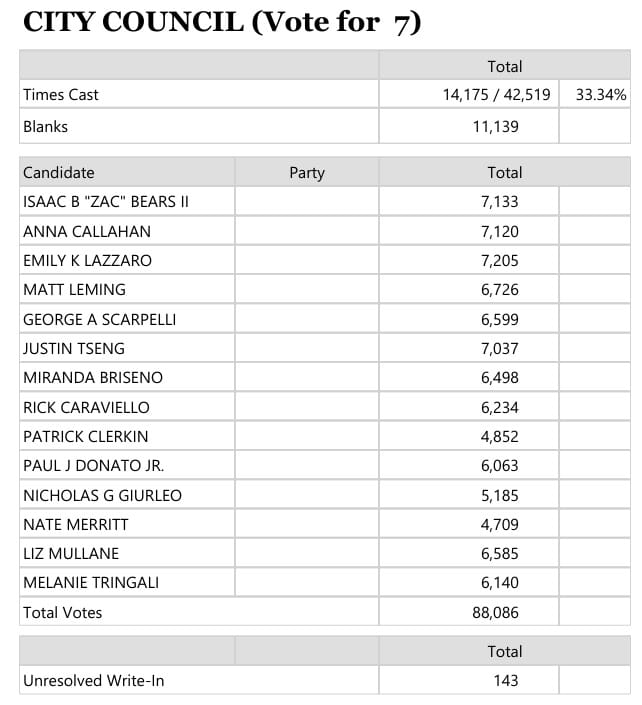Meet City Council Candidate Nick Giurleo

How many years have you lived in Medford?
I have lived in Medford my whole life, so approaching three decades now.
Please describe your professional background and education.
I graduated valedictorian of Medford High School in 2015.
I then attended Tufts University where I studied history, international relations, and Italian. I graduated magna cum laude with a bachelor’s degree.
I then worked for about a year in Medford Square for a criminal law practice.
After that, I attended Boston College Law School. I focused my studies on municipal law and land use, as well as criminal law. During law school, I interned for a federal judge, worked for a disability and special education law firm in downtown Boston, and was appointed by the Massachusetts Supreme Judicial Court a Rule 3:03 certified prosecutor. As an assistant district attorney at Malden District Court, I tried six criminal cases.
I took the bar exam the summer after I graduated from BC Law. I passed on the first attempt. I was admitted to the Massachusetts bar in November 2023 and currently practice for a firm in downtown Boston focused on plaintiff’s-side medical malpractice.
What, if any, city positions (appointed or elected) have you held, and for how long?
I have not held any yet, but I am a very regular attendee of City Council meetings who comments frequently on the matters that concern me.
What volunteer roles have you participated in that you feel have made a difference in Medford?
I have volunteered as a tutor at the West Medford Community Center. I also run a free bring-your-own-book book club for adults in their twenties and thirties that meets in public spaces across the Greater Boston Area, including in Medford.
Why should residents vote for you?
My commitment to the voters is to get things done and to truly represent their interests. Complaining without offering solutions helps no one. If you follow my campaign, you will see that I have proposed very specific solutions to the many issues affecting Medford. My ideas are not ideological and do not correspond with any one political group or another. My interest is in providing practical solutions to local issues. I will always keep an open-mind.
Additionally, the Council currently does not have any attorney members and would greatly benefit from one given the many legal issues that arise in its regular business. I am also uniquely positioned as a lifelong Medford resident and Tufts alumnus to improve relations between Medford and Tufts. I view myself as being uniquely positioned to bring arts and culture to Medford as well thanks to my education in, and appreciation for, the humanities and my memberships in a number of organizations that promote arts and culture.
What do you believe are the top 3 issues currently facing the city of Medford? How do you specifically plan to address those issues?
The top three issues, equally important, are: 1. Taxes, 2. Council Access, and 3. Zoning.
The burden on residents to meet the city’s spending needs is too much. Municipalities primarily meet spending needs through property tax revenue. Thanks to the November Proposition 2.5 overrides and a national cost of living crisis, residents are struggling to stay in their homes. This has also been reflected in skyrocketing rents. The solution is to shift the revenue burden away from residents as much as possible through commercial tax revenue generation such as new growth, preserving the existing commercial tax base, and renegotiating our PILOT agreements.
A number of procedural reforms are needed to make the City Council more accessible. Meetings are running far too late, councilors are speaking far too much, the public is not speaking enough, agenda items are changing last minute, and the Council has not sufficiently been focusing on local issues. The solution is changing the Council’s rules to make it more accessible and work to be better with publishing and communicating information to the public.
Residents are very concerned about residential zoning changes that will destroy the appealing character of Medford’s neighborhoods. Dramatic density increases without corresponding improvement of infrastructure and city services will be disastrous. I support scrapping the current residential re-zoning proposal on the table and re-focusing our efforts on commercial re-zoning so we can bring sustainable economic growth to Medford.
Transparency and communication are vital in representative government. What steps will you or have you taken to keep your constituents informed about local decisions and to explain your voting rationale?
Councilors should be responding directly to public comments, referencing during debate specific remarks and addressing their merits. Councilors should not be ignoring public comments that do not align with their preexisting beliefs. I will strongly encourage the city to do a better job publishing information to the public on processes and outcomes. I will also attempt as a councilor to use my public platform to educate the public on the City Council’s work.
What specific methods will you use to gather and represent your constituents’ perspectives on issues that come before the City Council?
My plan is to make the City Council more accessible to residents by changing its internal rules and making public information easier to obtain. My first resolution when elected will be to restore public speaking time at meetings from three minutes back to five minutes. I will then propose changes to cap how late meetings run, prevent last-minute agenda changes, and keep the Council focused on local issues. As a councilor, I will propose and move to take local issues first on the agenda, putting symbolic papers on state and national matters at the end.
As for public information, I will ensure the Council (and city) is responding completely and lawfully to public records requests. I will work to ensure the city is publishing (and not hiding) key documents, such as our payment-in-lieu-of taxes agreements and other city contracts, for public review. I will also push the city to publish more information on procedures so residents understand better how the lawmaking process works at the local level.
The past two years, the City Council has been updating the zoning across the city. Many residents feel the process has been too quick and has covered too much at once. What are your thoughts on that? If elected, how would you approach zoning?
I agree with these residents’ concerns. Many did not become aware of the breath of the residential rezoning effort until very late in the process. When they became aware and started to learn about the details of the proposal currently on the table, they became deeply concerned about its implications and turned out in large numbers to voice their concerns to the Community Development Board. This prompted the mayor to intervene on their behalf.
I do not support extension of the Innes Associates contract unless the current proposal is scrapped and other conditions are met. Public opposition to it is too extensive for it to be a genuine reflection of the community’s desires. I share residents’ concerns that the dramatic density increases the rezoning would bring will dramatically and adversely affect the character of our neighborhoods. I am also deeply concerned by how the proposal would strain essential city services. Resident stakeholders and decision-makers do not have sufficient information to make an informed decision on the proposal in its current form. We cannot move forward unless we know how fire, infrastructure, police, the schools, etc. will be strained by a significant increase in Medford’s population through increased housing density. I also question if dramatically increasing density will actually make housing in Medford more affordable. There have been no studies on the economic impact either. The most important question we must ask when discussing affordable housing is, “Affordable to whom?”
I am not opposed to making reasonable changes to our zoning ordinance, but I cannot support the proposal on the table in its current form. I think our time would better be spent on the commercial side of the question, developing ways to change our zoning rules to incentivize reasonable economic development in Medford and preserve our commercial base.
There have been City Council meetings that have gone past midnight. Do you really think these marathon meetings are serving the public? Should there be a time cap on meetings for everyone’s sake?
I was the first candidate this election cycle to bring significant public attention to the issue of very late-night meetings. I do not believe these meetings are serving the public at all. Super-late running meetings restrict public participation. People have work, school, childcare, and other commitments that make it highly impractical or impossible to wait all night to speak three minutes on an agenda item. As such, we are not getting a representative sample of opinions during public comment when agenda items are taken up so late.
I support changing the City Council’s rules to impose a hard cap of 11 p.m. on all meetings, subject to a suspension of the rules. Under my proposed amendments, items that are not taken up by this time are to be automatically tabled to the next regular meeting, or by vote, to a special meeting. I also support limiting councilor speaking time on agenda items to no more than 10 minutes per paper and will call on the chair to strictly enforce this rule. When elected, I will also move to table any papers on significant local issues that do not get to public comment before 10 p.m.. I think we should also explore returning to weekly regular meetings of the Council.




